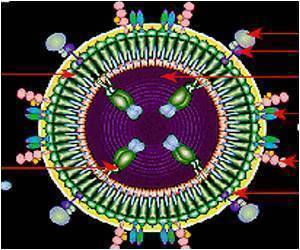- HIV infection is one of the worldwide challenges faced by middle and low-income countries.
- New antibody drug ‘10-1074’ found to show potential strategy in the prevention or treatment of HIV.
- Patients who received a high dose of the drug showed a rapid decline of the virus.
Till Schoofs, an instructor in Clinical Investigation, Nussenzweig’s lab said, "This was the first human trial of 10-1074."
"The antibody binds to a different part of the virus than the other antibody we've studied. In addition, it's one of the most potent broadly neutralizing antibodies described to date."
Acquired Immunodeficiency Syndrome(AIDS) caused by the HIV is one of the world’s most significant challenges that is being faced by the low and middle-income countries. According to the World Health Organization (WHO), around 18.2 million people in the world were receiving treatment for HIV in mid-2016.
Antiretroviral medications are life-saving drugs for people with HIV infections. The drawbacks include severe side effects. The research team continues to look for new drugs that can control the virus and could be a part of an alternate treatment strategy.
The research study on the antibody drug included 19 individuals with HIV infection and 14 of them who were without the infection. The clinical trials were mainly carried out to determine whether the antibody was safe and had antiviral activity in humans.
Most of the people involved in the trial were from the Rockefeller University Hospital while some of the HIV-1 infected participants received the drug at the University of Cologne in Germany.
Findings of the Study
The research team found that
- 11 out of the 13 HIV patients who received high dose of the drug showed a rapid decline in the virus.
- Resistant viruses were still sensitive to other broadly neutralizing antibodies, which included 3BNC117, targeting different parts of the pathogen.
On analyzing the samples of uninfected participant’s blood samples, 10-1074 antibody drug is found to be effective to prevent infection in people who are exposed to the virus.
Antiretroviral medications can be received by people who are at a risk of getting HIV like people who have multiple sexual partners. Eg. HIV-infected partner.
These patients can receive antiviral medications to prevent disease, by pre-exposure prophylaxis (PrEP). These drugs can also cause severe side effects and must be taken daily to be effective.
Caskey, said, "Based on our findings we think these types of antibodies could be a viable substitute for the drugs currently used in PrEP."
"But to clearly demonstrate that these antibodies have an advantage over the pill that's currently used, we would need to test them in large numbers of people and show that they remain active for a prolonged period of time in the body."
The research team also looks for modified variants of antibodies with prolonged activity, so that it can be given less often when compared to the PrEP setting. The new clinical studies setting using 10-1074 together along with 3BNC117, involves combining both the antibodies to target different parts of HIV that can be more effective than combining either antibodies of its own.
References:
- Marina Caskey et.al. 'Antibody 10-1074 suppresses viremia in HIV-1-infected individuals' Nature Medicine (2017); doi:10.1038/nm.4268
- 10 facts on HIV/AIDS - ( http://www.who.int/features/factfiles/hiv/en/)
Source-Medindia















